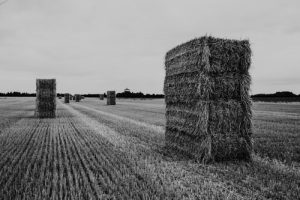In the past few years, many farmers have started burning rice straw right after harvest. It’s now become common practice in many places around the globe. This action has caused adverse impacts on both the environment and people’s health. Fortunately, the past few years also features the collection of straw after harvest. It has been implemented by multiple organizations and is bringing some great results. So, with that said, what type of twine is best suited to tie straw and turn it into large batches of hay? That’s the job of the Unipak balers twine.
In this article, we’re going to discuss what a baler twine is, it’s the purpose and several application options. While it may seem like nothing more than a piece of string, it’s more than just that. We want to spread the word about the goodness of the balers twine in a farmer’s daily work. That’s why if you’re interested, continue reading now.
What’s a Baler Twine?
 The word “bale” is derived from the manner in which hay and other types of natural – and even artificial – materials are compiled together for easy stacking and transport. Waste paper, grass, straw, sticks, or other such materials that are brought together to form a compact shape are also called bales. The baler twine is a sisal or synthetic twine that’s used to bind a significant quantity of fibrous materials; notably straw or hay. This twin will then form the compact fibrous materials into a single bundle; thus, making it compact and easy to stack.
The word “bale” is derived from the manner in which hay and other types of natural – and even artificial – materials are compiled together for easy stacking and transport. Waste paper, grass, straw, sticks, or other such materials that are brought together to form a compact shape are also called bales. The baler twine is a sisal or synthetic twine that’s used to bind a significant quantity of fibrous materials; notably straw or hay. This twin will then form the compact fibrous materials into a single bundle; thus, making it compact and easy to stack.
The Unipak balers twine is made from 100% polypropylene. The chemical structure of polypropylene (PP) is a thermoplastic “addition polymer” that’s created when you combine propylene monomers. It has a low degradation rate when exposed to ultraviolet light like sunlight. This feature makes baler twine a suitable candidate for different uses that require prolonged exposure to sunlight.
Baler twine can also be manufactured in different colours to identify different bales quickly. Since these are tied up in a variety of colours, they will become more recognizable, allowing for convenient storage, transportation, and processing. 100% polypropylene Unipak balers twine has displayed excellent resistance to degreasers and organic solvents. It won’t rot or develop mould, making it the perfect twine to deal with your silage and hay bales.
For more information on the balers twine, make sure you check out our blog page. You can also buy a balers twine from us. Click here to make your order.